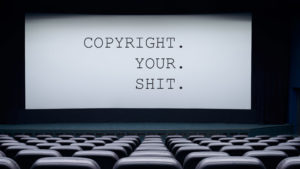Someone has sent you here because, apparently, you don’t know shit about screenwriting.
The best thing you can do to get yourself started is to read some fucking screenplays.
There is a lot of info on this page, but you can also check out these pages…
- Tips

- Schools

- Network

- Getting In

- Screenwriting Competitions

- Lawyers for Screenwriters

- Copyrighting A Screenplay

- Screenwriting Blogs

- Screenwriting Videos

- The Best Movies For A Screenwriter To Watch

- Screenwriting Podcasts

- Excellent Books on Screenwriting

- Screenwriting Software

- Scripts to Read

- Cures For Writer’s Block

But first though…
Seriously, to get started in screenwriting, you need to know what they actually look like. Read some scripts first.
Reading lots of scripts is probably the single most productive thing you can do, other than actually spending time writing.

Shit Criticism
Screenwriting Shit has received a mix of critical responses, similar to what you might expect from King of The Hill characters standing at the curb drinking beer, and we really appreciate it. Would you attribute John August’s response to Hank or Dale?
Feedback
Your feedback and input are welcome unless you want us to tone down the language. Sorry, that is actually load-bearing decorative sass.















